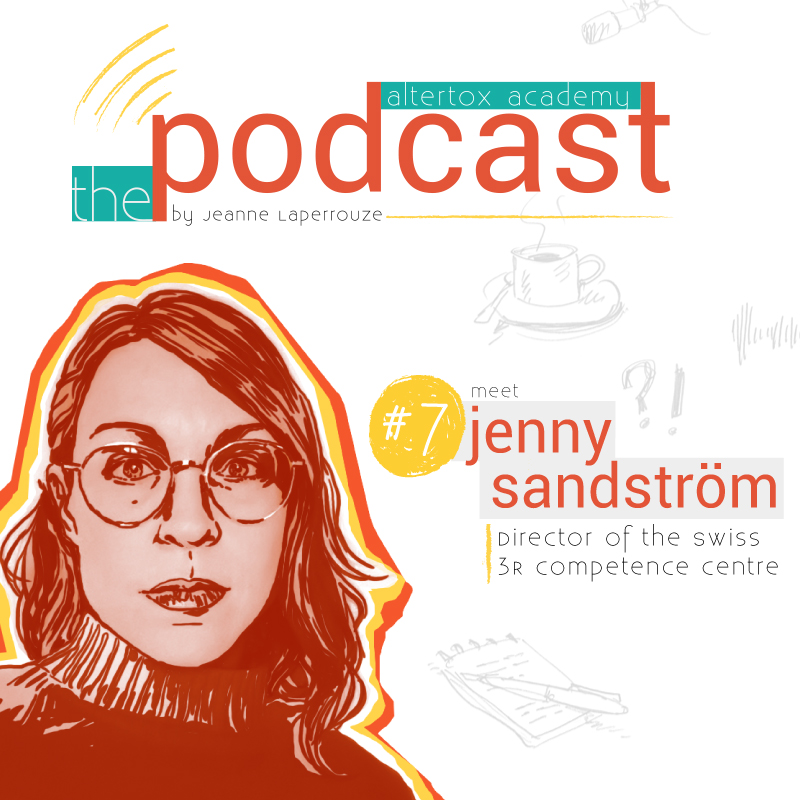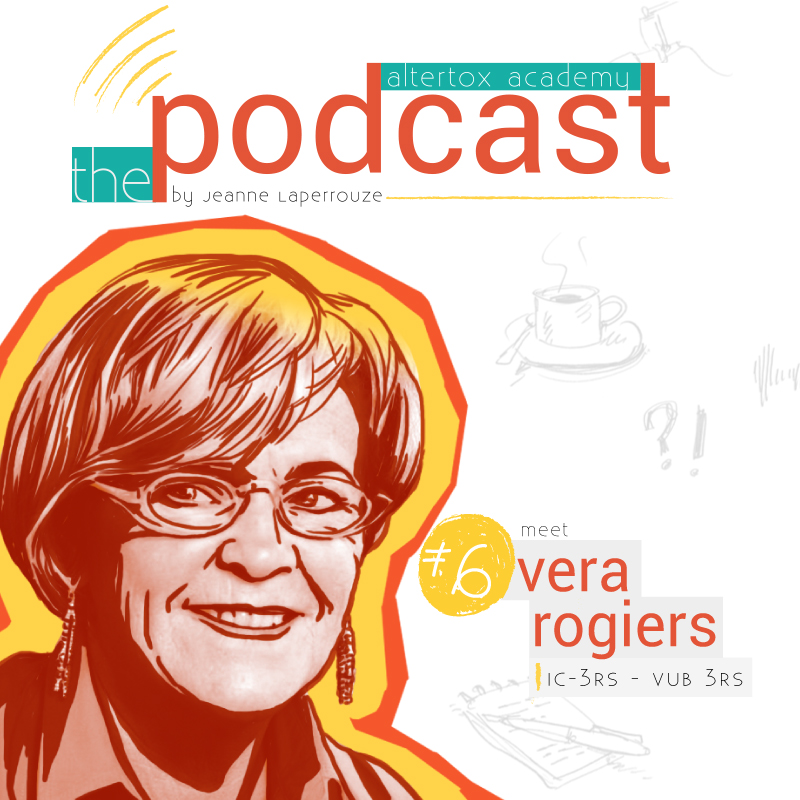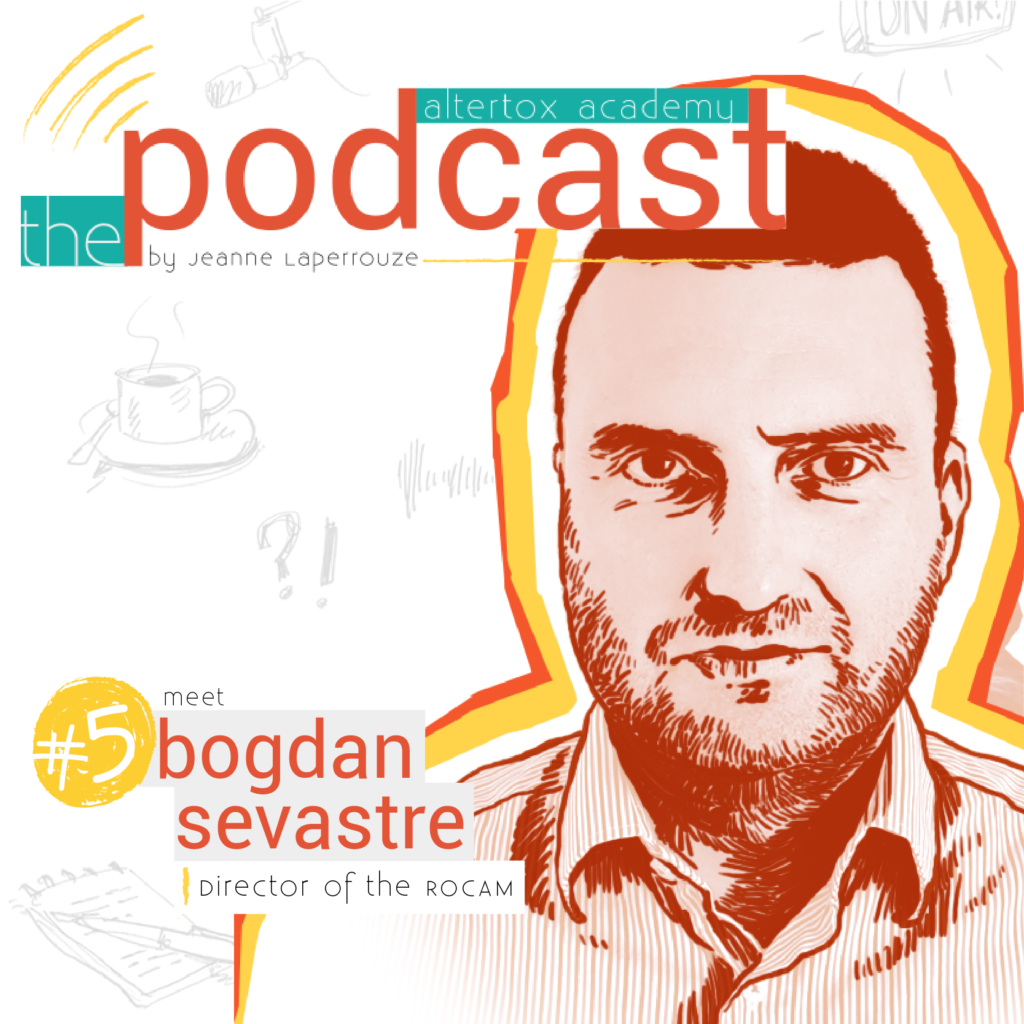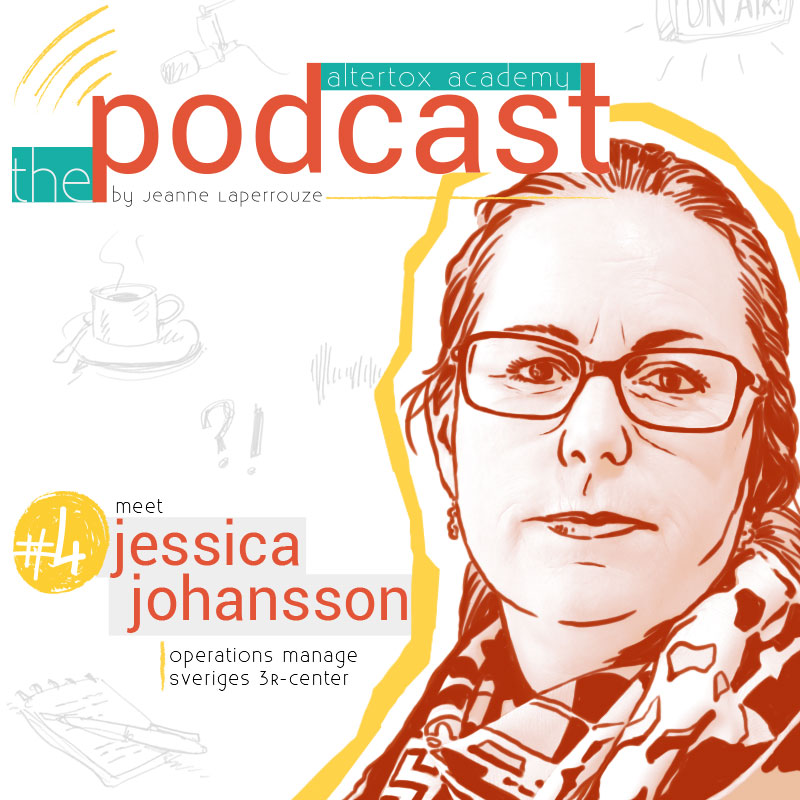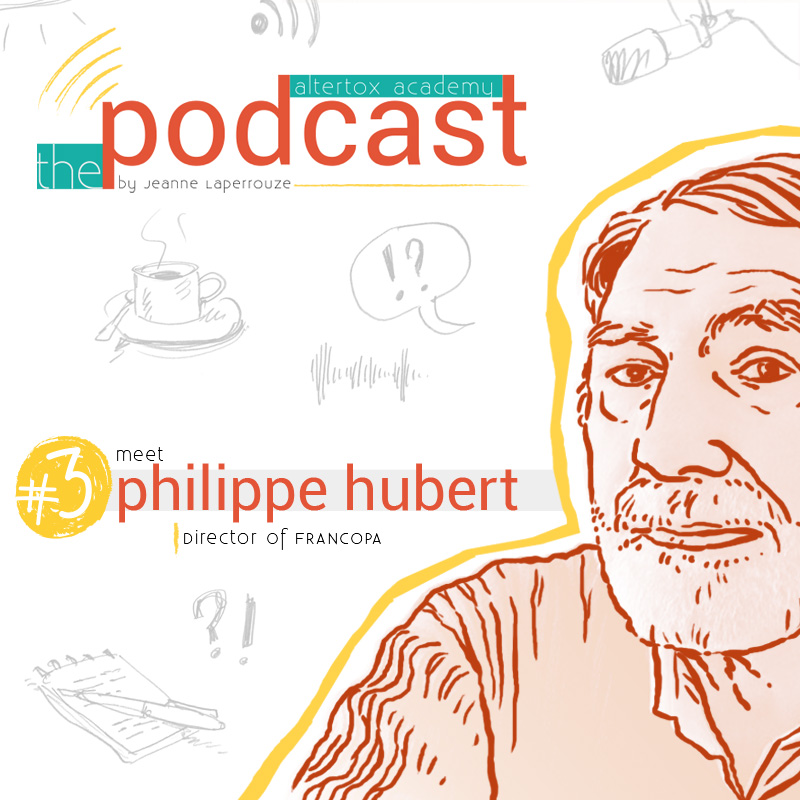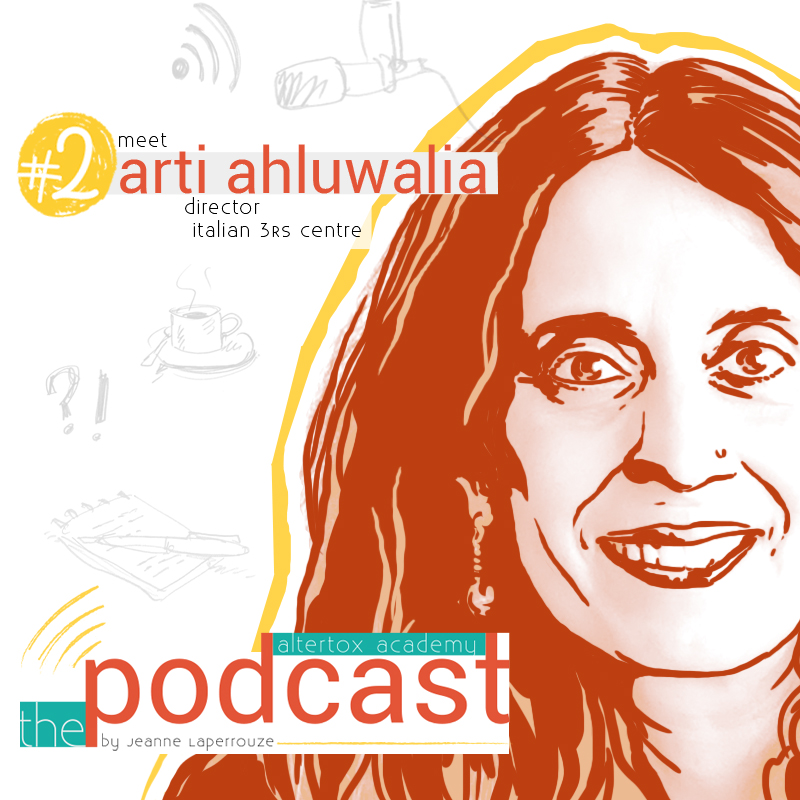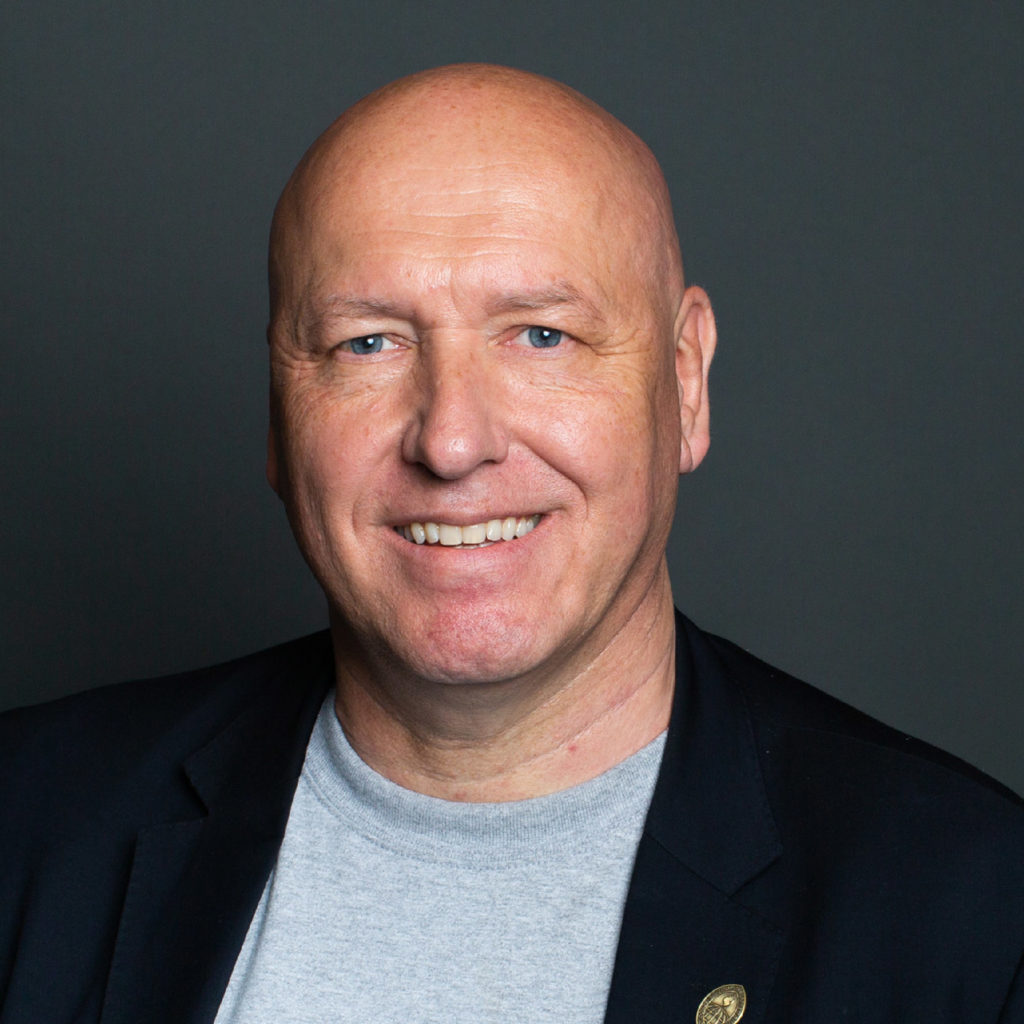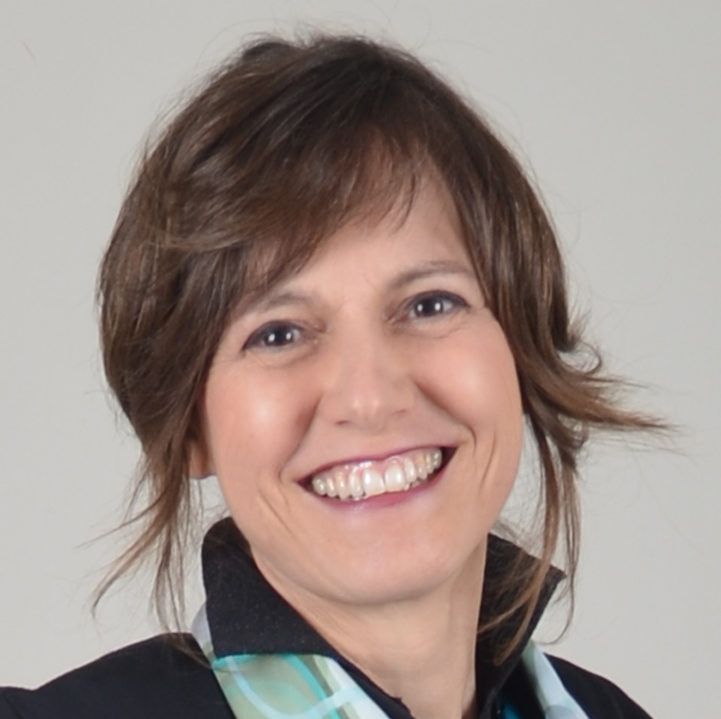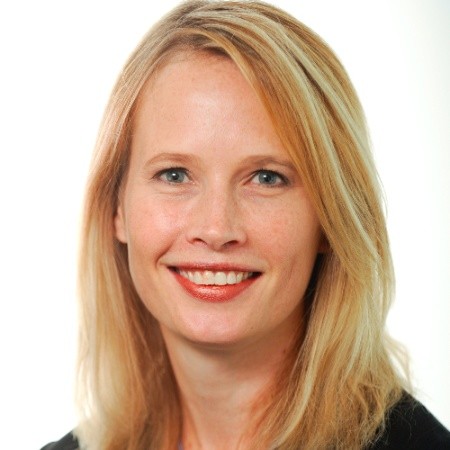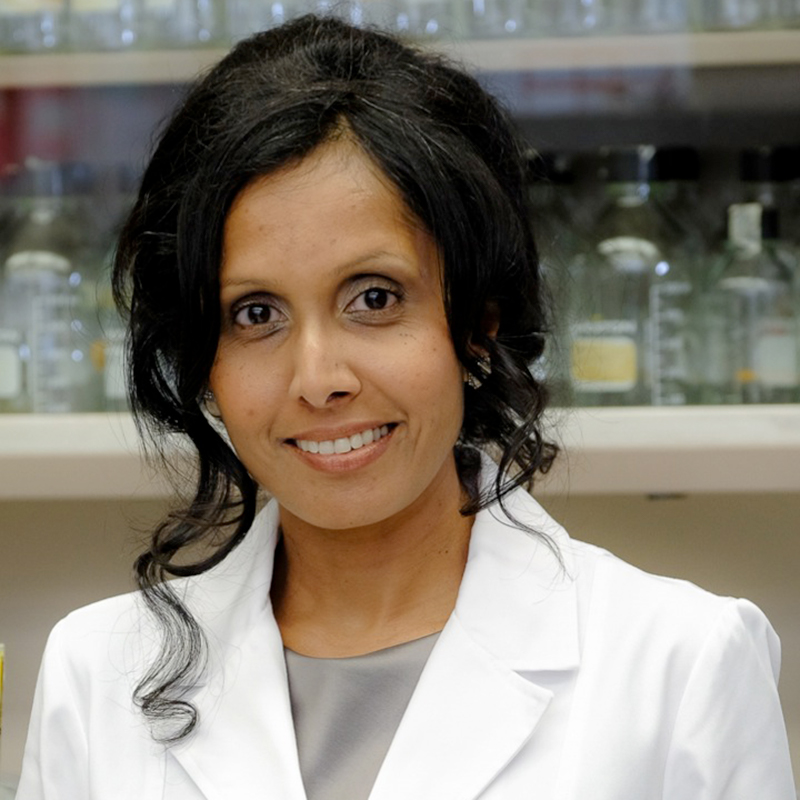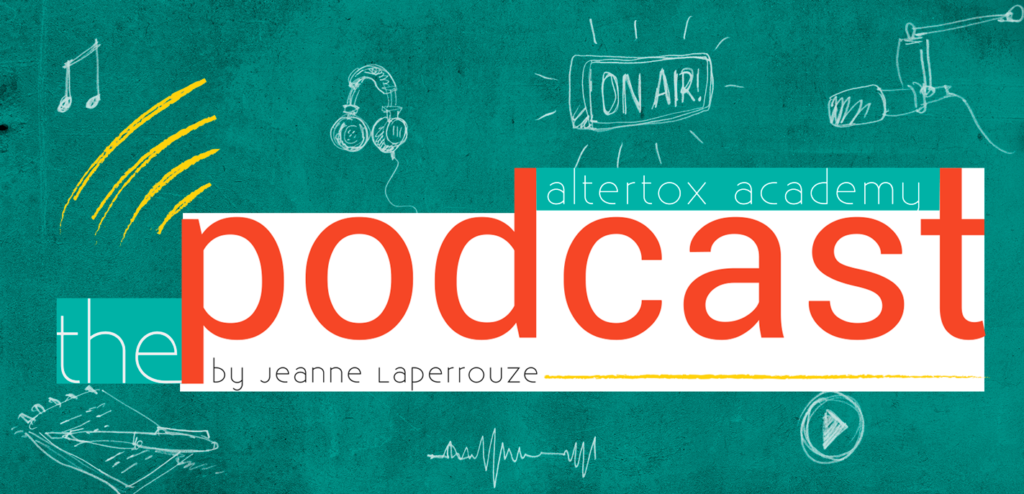

Discover the first series of podcasts produced by Altertox Academy and dedicated to the 3Rs centers in Europe. The 3Rs centers promote and encourage the replacement, reduction and refinement of animals used for scientific purposes. Jeanne Laperrouze meets the Directors of the centers and discuss progress towards the full replacement of animal testing in Europe, the legislative framework and the situation in their member states
listen to the latest episodes
Altertox Academy: The Podcast
Episode #7
As a public vote on animal testing will take place in Switzerland on 13 February, Jenny Sandström, Executive Director of the Swiss 3R Competence Centre (3RCC) comments on the possible consequences of the public consultation for the 3Rs and research in her country as well as in Europe. She also describes the role of the 3RCC to promote the 3Rs while explaining the legislation and specific statute of animals in Switzerland.
Episode #6
Vera Rogiers, Emeritus Professor of Toxicology and Chair of the Innovation Centre – 3Rs at the Vrije Universiteit Brussel, explains the creation and actions of the Centre to promote the implementation of the 3Rs in scientific research by using new technology and new approach methodologies (NAMs). She describes the peculiar situation of Belgium, a federal state, when it comes to promoting NAMs and also discusses the upcoming revision of the REACH Regulation and what can be expected from the EU Green Deal.
Episode #5
In this episode, Prof. Bogdan Sevastre, Director of the RoCAM, presents the history and missions of the Romanian 3Rs centre and the impact of the EU Directive on the protection of animals used for scientific purposes in his country. He also discusses the role of education and the next generation of scientists in the development and adoption of the 3Rs principles, and how animal welfare and better science go hand and hand to tackle the reproducibility crisis.
Episode #4
Jessica Johansson, operation manager at the Swedish 3Rs Center, informs us on the agenda of the Swedish agencies and committees involved in the promotion of New Approach Methodologies. She describes the boarder scope of the legislation on animal welfare in Sweden, the strategies in place to ensure transfer of knowledge, accelerate the uptake of alternative methods and highlight the importance of cooperation and dialogue among all stakeholders to push the 3Rs.
Episode #3
In this episode in French, Altertox Academy invites you to meet Philippe Hubert, Director of Francopa, the French platform for the development of alternative methods to animal testing which brings together the world of research, animal welfare groups, regulators and industry. Philippe Hubert tells us about breakthrough technologies that enable to reduce and replace animal experimentation and how regulatory science triggers innovation in this field
Episode #2
For this second episode, Altertox Academy takes you to Italy to meet Arti Ahluwalia, Director of the Italian 3Rs Centre who tells us about the difficult transposition of the EU Directive on animal used for scientific purposes in Italy. She describes the interuniversity plateform’s actions to promote the replacement, reduction and refinement of animals in science and gives us insights on how to move towards the adoption of alternative solutions.
Episode #1
For this first episode, Altertox Academy takes you to Norway to meet Adrian Smith, Secretary of Norecopa who explains the creation of the Norwegian 3Rs centre, the impact of the European Directive on animal used for scientific purposes and what Norecopa is doing to promote the replacement, reduction and refinement of animals in science.
VOXLAB: PrecisionTox Podcast
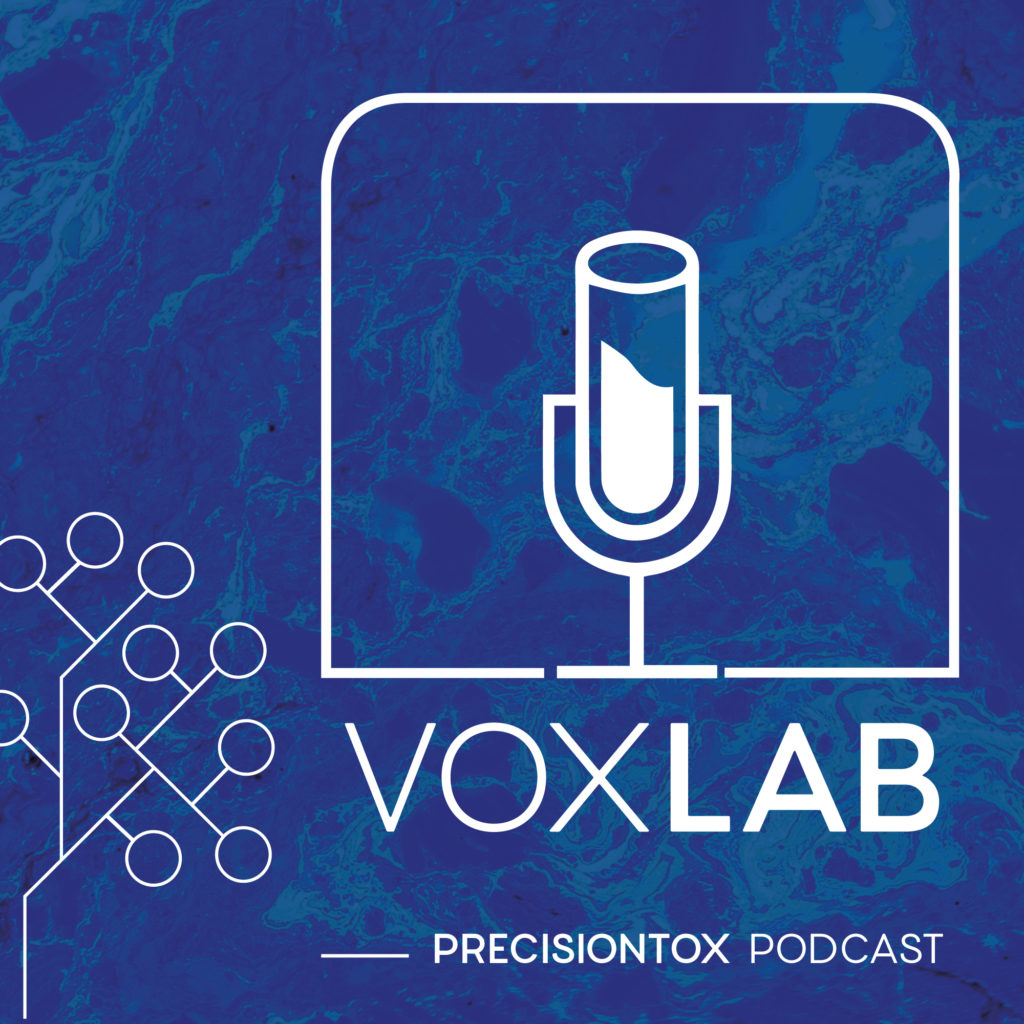
The VOXLAB podcast series takes you on a journey towards precisiontox toxicology. Listen to the voices of scientists across the globe working to advance life sciences and provide faster and more accurate solutions to understand the mecanisms of action of toxicants on human health.Discover what the theory of evolution teaches us about fruit flies, round worms, water flea, zebrafishes and frogs and how we can harvest this knowledge to better protect all animals, including humans, and the ecosystems from the adverse effects of chemicals thanks to the power of phylogenetics and toxicology.The PrecisionTox Consortium gathers 15 research organisations from Europe and the US under the leadership of the University of Birmingham, united around the objective of tackling chemical pollution worldwide, the first cause of deaths in the world. The Precisiontox project has received funding from the European Union’s H2020 program (Grant Agreement n° 965406) to accelerate chemical risk assessment without the use of mammalian testing to better project human health and the environment. The content of this programme only reflects the authors’views, the EU cannot be hold responsible for any use of the information contained therein.Learn more on our website: www.precisiontox.org / Follow us on Twitter: @precisiontox
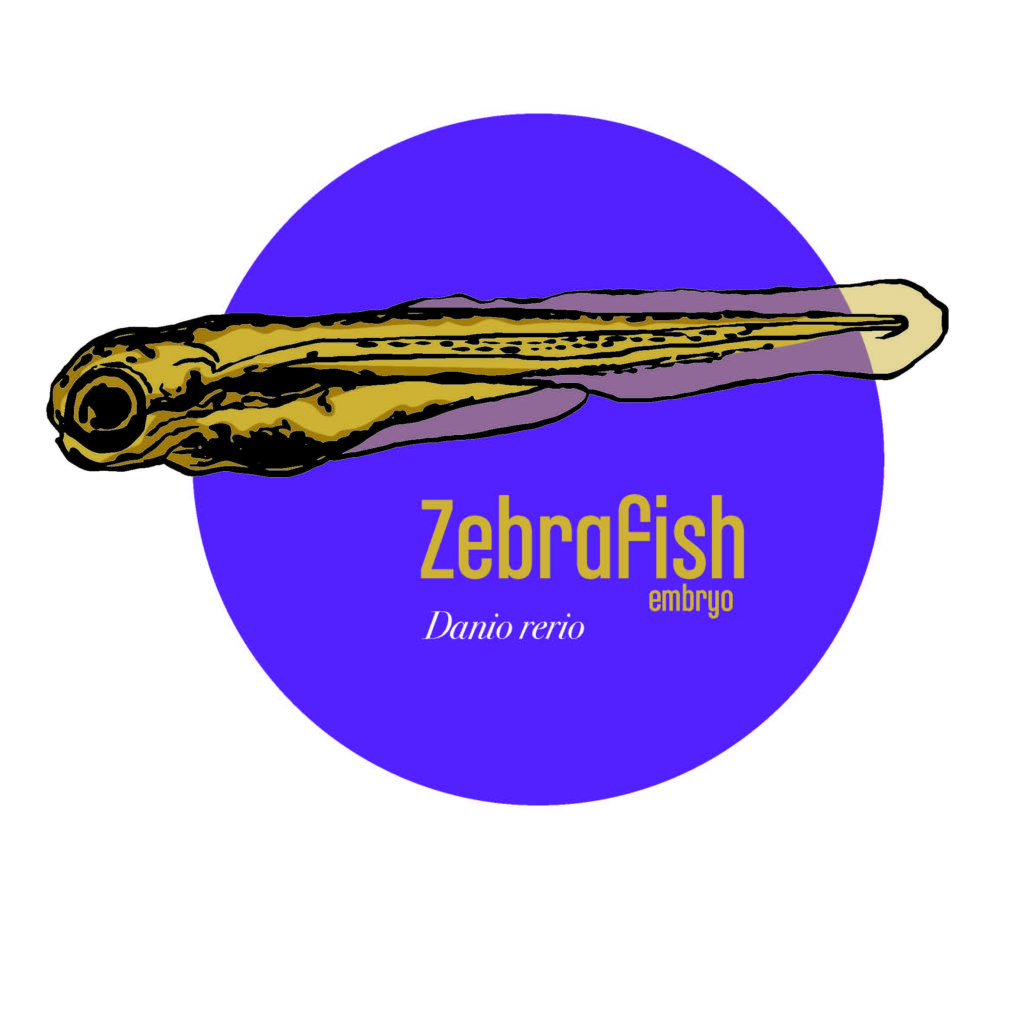
Episode #5: Zebrafish model: from ecotoxicology to biomedical research
Thomas Dickmeis, from our partner organisation KIT introduces us to the use of zebrafish embryos in research. From ecotoxicology to biomedical research, discover the fascinating features of this popular fish and how scientists are using this robust 3Rs compliant model to advance the understanding of animal biology, including humans.
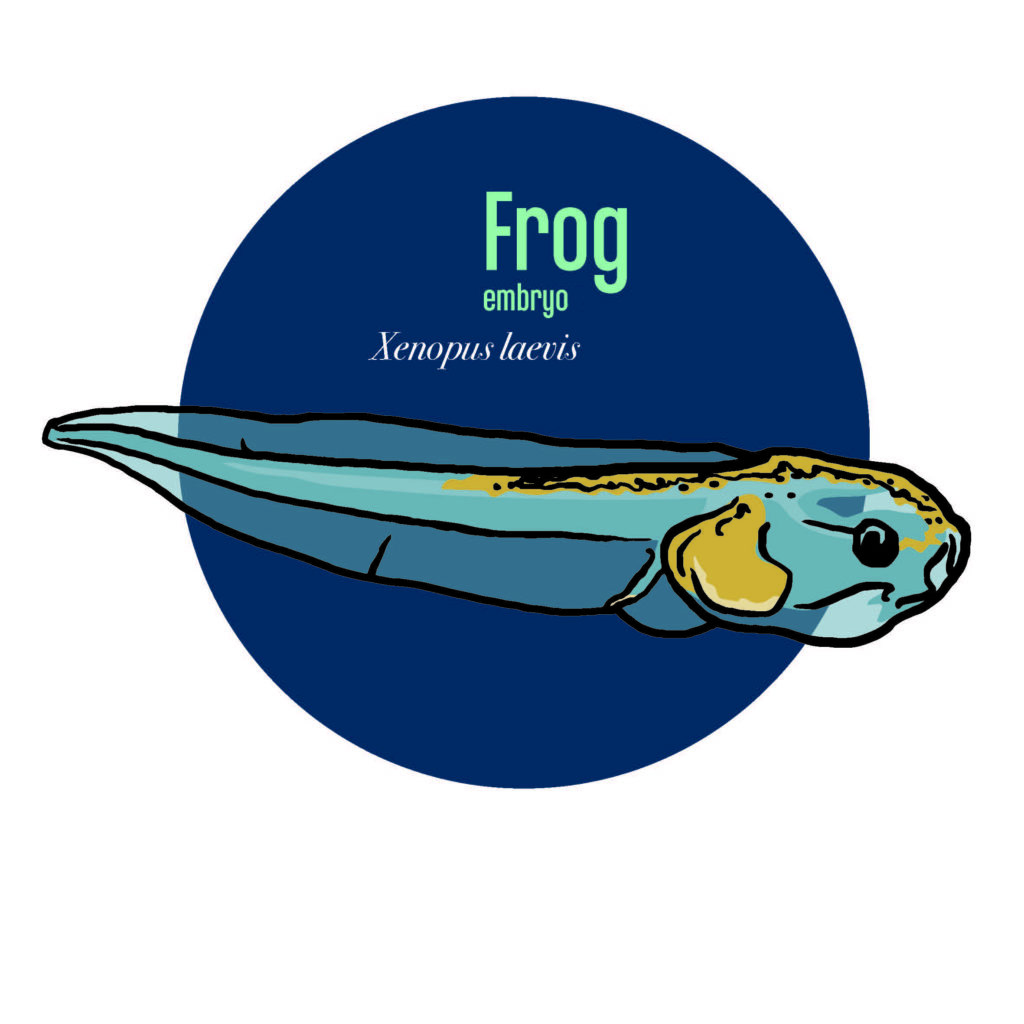
Episode #4: Xenopus embryos, a 3Rs compliant model for Human and environment health
Barbara Robin and David Du Pasquier, from the Laboratories WatchFrog in France, are the guests of this episode dedicated to the Xenopus embryos. This frog from Africa has gained a growing attention in the scientific community throughout the last decades for all the endpoints that it allows to study. Xenopus embryos consitute a model compatible with the objectives of reducing and replacing animal testing which can teach us a lot on the potential adverse effects of chemicals on human health, and thus in a ethical, faster and cost-effective way. Our guest will tell you more in this podcast.
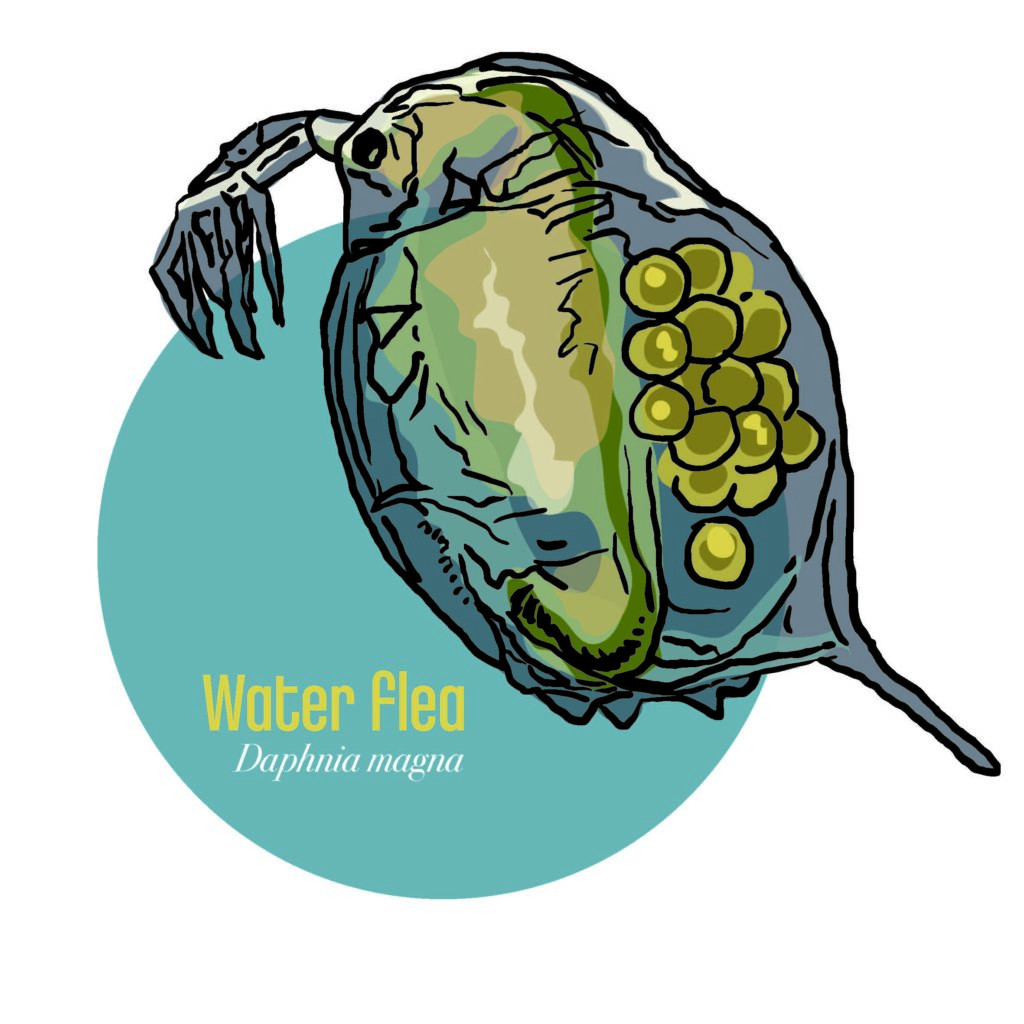
Episode #3: Daphnia, a biodiversity time machine to protect humans and the environment
Prof. Luisa Orsini of the University of Birmingham introduces us to another fascinating organism model that serves both as sentinel in ecotoxicity as well as to predict the effect of chemicals on human health. Daphnia is a crustacean that lives in fresh waters that has the capacity to clone itself and enter stasis for centuries. Scientists use this model to understand biodiversity loss through times. These characteristics as well as the conserved genes that they share with humans throughout evolution also makes it a promissing model to replace mamalian models in toxicology to accelerate the identification of harmful chemicals. Discover how!
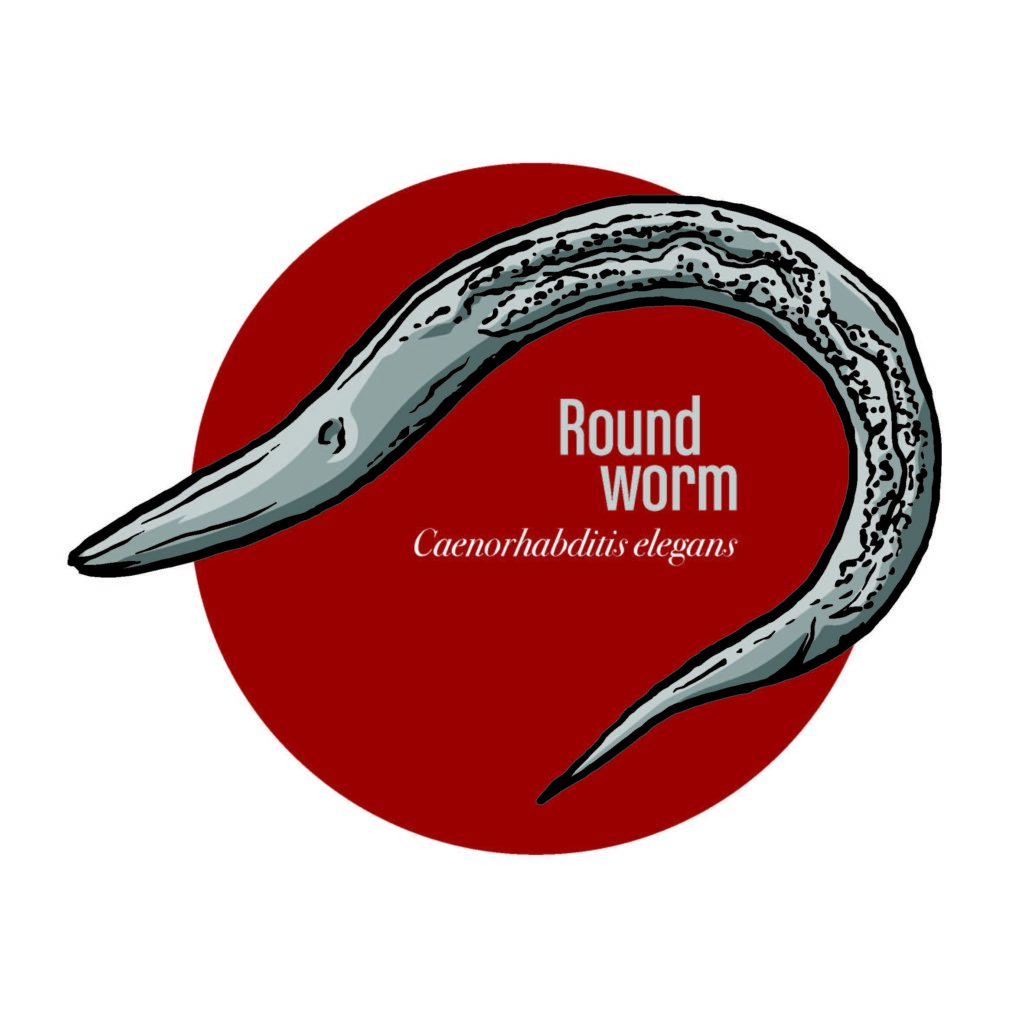
Episode #2 How worms are replacing mammalian models in toxicology and safety testing
In this second episode of VOXLAB, the PrecisionTox podcast, Jeanne Laperrouze meets Prof. Jonathan Freedman from the University of Louisvilles (USA) to discuss the opportunities offered by alternative models to mammalian animals, such as C elegans to advance safety assessment of chemicals. This worm was the first organism whose DNA was fully sequenced. Since then, researchers have gathered extensive knowledge on this organism that the PrecisionTox consortium is now harvesting to transform toxicology from an observation discipline to a mechanistic science, to ultimately better protect human health and the environment. Discover how in this podcast and more!
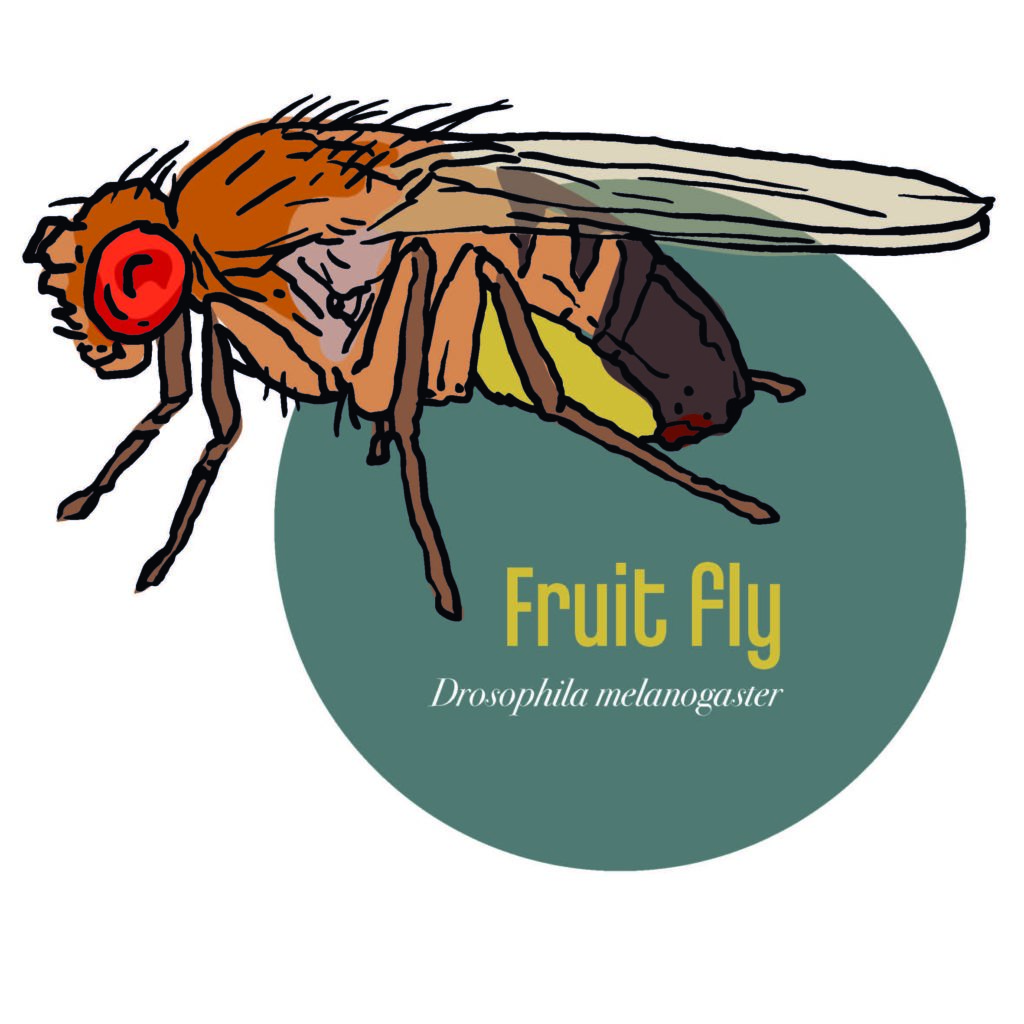
Episode #1 What Drosophila can bring to toxicology and human health?
Did you know that 60% of the Drosophila melanogaster (or fruit fly) genome is 60% homologous to that of humans? And that 75% of these genes were inherited from a common ancestors? That makes a valuable argument to use flies as a relevant model to study human health.
Dr. Trudy Mackay, Director of Clemson University Centre for Human Genetics, explains how the theory of evolution and the advancement of genetics have led the PrecisionTox project to select Drosophila as one organism models to develop methods to accelerate chemical risk assessment to better protect humans and the environment and ultimately replace mammalian models.
WC11 Podcast
The communication committee of WC11 invites you to an exchange of views on Alternatives and Animal Use in the Life Sciences. Every month in this series of podcasts produced by Altertox Academy, representatives of the scientific community, international regulatory bodies and industry will provide their perspectives on the paradigm shift occurring in life sciences in the last decades. Join us to learn more about breakthrough technologies, artificial intelligence, the hottest scientific information and how regulation is to adapt to these changes.
May 2021: Thomas Hartung
In this first episode, Professor Thomas Hartung of John Hopkins University and the Center for Alternatives to Animal Testing (CAAT), explains how innovation is revolutionizing toxicity testing to improve public health and how life sciences are slowly but surely moving away from animal experimentation.
June 2021: Sandra Coecke
Meet Sandra Coecke, who works for the European Union Joint Research Centre (JRC) and coordinates the EU Network of Laboratories for the Validation of Alternative Methods (EU NETVAL). Sandra tells us about the evolution of the EU and international framework on alternative to animal testing, the development and uptake of these methods in Europe and globally, and the integration of the 3Rs in the EU Green Deal.
July 2021: Kirsty Reid
Kirsty Reid, Director of Science Policy at the European Federation of Pharmaceutical Industries and Associations (EFPIA) is the guest of our 3rd episode dedicated to the 3Rs in transition. In this podcast, Kirsty describes the commitment of the industry to improve animal welfare as well as to reduce and replace the number of animals used for scientific purpose, and the impact of this transition for the sector.
August 2021: Charu Chandrasekera
Charu Chandrasekera, Founder and Executive Director of the Canadian Center for Alternatives to Animal Methods (CCAAM) is the guest ouf our 4th podcast. She advocates for a paradigm shift in which Human serves as the quintessential animal model in research and provides inspiring insights on how to move away from animal models.

